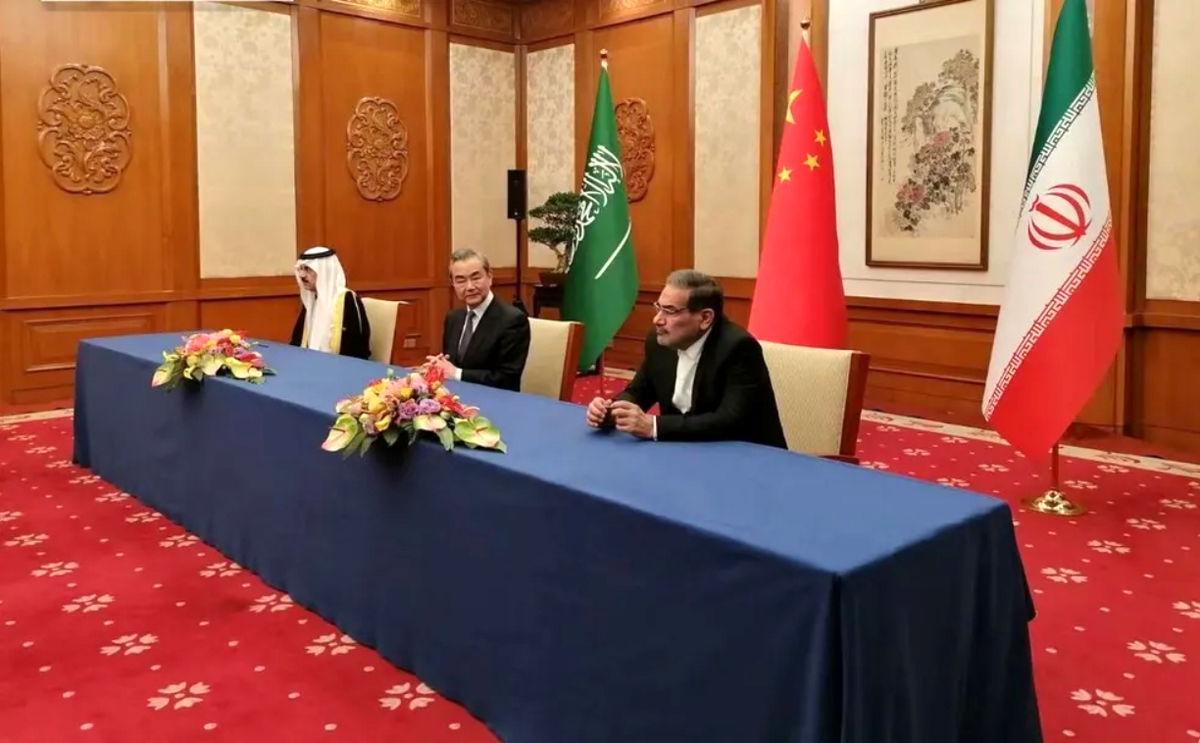Mediation efforts to revive Tehran-Riyadh relations go back two years ago, starting with the Iraqi government’s initiative. Still, in the recent visit of Seyed Ebrahim Raisi, the IRI President, to China and his talks with Xi Jinping, the platform was provided to form “new and earnest negotiations” between the delegations of the Islamic Republic of Iran and Saudi Arabia.
As a result, after conducting frank, transparent, comprehensive, and constructive talks, the two countries agreed to resume their official political relations and reopen their embassies and representative offices within a maximum of two months.
In the success of Beijing’s mediatory initiative to improve Iran-Saudi relations, three essential components play a prominent role: first, China’s outstanding and global role and position, as well as its deep ties with Iran and Saudi Arabia, which brought them closer together. Second, the process of regional developments, especially the “strategic importance” of reviving relations between the two countries. Third, the differences between the Islamic Republic of Iran and Saudi Arabia influence the need to resolve some regional crises.
Regarding the improvement of relations between the Islamic Republic of Iran and Saudi Arabia, which will enter a new stage in the coming weeks through the reopening of embassies, there are two noteworthy points; first, the “strategic consequences” of this outstanding event, and second, the necessity of “vigilance between the two countries” in the face of the efforts of international, regional and domestic destructive agents to destroy and weaken the implementation mechanisms of the Beijing agreement, which is influenced by the fear of some regional and international players of the strategic consequences of a severe change in relations between Tehran and Riyadh.
The first point, “failure of the policy of regional and international isolation of the Islamic Republic of Iran,” is at the top of the strategic consequences of the revival of relations between the Islamic Republic of Iran and Saudi Arabia. The political isolation of Iran is one of the anti-Iranian strategies of the United States and the Zionist regime, which has been vigorously pursued in regional and international fora in recent years.
This issue is so important that even the Supreme Leader of the Islamic Revolution mentioned it in his Nowruz speech in Mashhad and said: Westerners are imposing pressure to isolate Iran… but what happened had the opposite result.
Considering the position of Saudi Arabia among littoral states of the Persian Gulf and most of the Arab countries, it is natural that with the improvement of the relations between the two sides, relations of other Arab countries with the Islamic Republic of Iran, which were strained and severed in the past, will be restored.
The Zionist leaders have shown the sharpest reaction to the agreement mentioned above. Most of them have referred to the Beijing agreement as a “dangerous disagreement mentioned above surely due to the consequences that this agreement has for them and narrows the circle of partners of that regime. “Weakening the regional position of the Zionist regime” is the following necessary consequence.
This agreement was made when many in the region, even inside the occupied territories, were waiting to normalize Saudi relations with the Zionist regime! Therefore, an unexpected and shocking development occurred for the Zionist leaders. For example, former Prime Minister Yair Lapid said the agreement was a total failure for the Israeli government. With this agreement, the regional defense wall that they built against Iran was destroyed.
Expanding stability and security in the region, creating a challenge to the US regional and global prestige and hegemony, influencing other regional cases in which Iran and Saudi Arabia have interests (Yemen, Syria, Lebanon, and Iraq), expanding China’s influence in the Persian Gulf and West Asia, and accelerating formation process of the new international order, which is an “Asia-centric order” centered on China, Iran, Russia, and Saudi Arabia, is another direct and indirect strategic consequence in this regard.
The second point, reaching an agreement in Beijing, brings the two leading players of the region together after years of hostility and adds to China’s growing presence in the region, both of which are considered a challenge for the US and the Zionist regime.
Therefore, it is possible that Washington and Tel Aviv, who are the main losers of the Tehran-Riyadh agreement, will try to destroy and weaken the path of restoration of Iran-Saudi relations by resorting to mechanisms such as inciting radical and destructive factors that have been effective in cutting off ties between Iran and Saudi Arabia. This issue requires the vigilance of the relevant authorities and organizations of the two countries.
Considering its consequences, the agreement mentioned above will provide a “new opportunity” for cooperation in the region through “strengthening the process of diplomacy” between traditional rivals; this is not a pleasant situation for the criminal regime of Israel and even the US, who have defined their regional interests in the tension between Islamic countries, including Iran and Saudi Arabia.
In addition, contrary to its stated policy of welcoming the agreement mentioned above, the US administration cannot tolerate what happened with Beijing’s focus, which demonstrated the real success of China’s diplomacy and mediation skills.
The agreement in Beijing is a prelude to resolving other stressful cases in Asia without resorting to mechanisms based on the US and European initiatives, which can question the credibility of the United States and perceptions of that country’s power and hegemony.
Final point
Maintaining the crisis-causing trends in the region and intensifying the tension in the relations between the Islamic Republic of Iran and Arab countries are among the critical strategies of the Zionist regime and the United States in the region. Therefore, there is no doubt that Tel Aviv and Washington will be looking to “create a new crisis” to “ weaken” the Beijing agreement through the tools and mechanisms they have in various forms.
Therefore, it is necessary to be “vigilant” against the destructive policies mentioned so that restoring relations between Saudi Arabia and Iran, an “important regional achievement,” goes well.










0 Comments